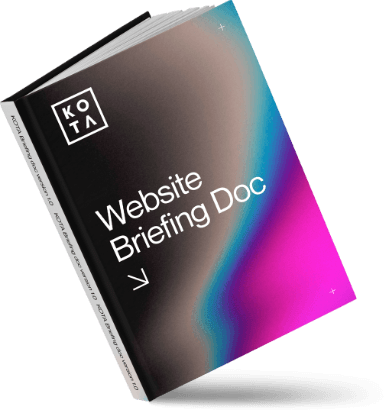Should marketing teams be preparing for SearchGPT?

As if Marketers don’t have enough new algorithm changes to navigate, OpenAI has thrown us another curveball with their SearchGPT prototype.
So, what exactly is SearchGPT, how does it differ from traditional search engines like Google, and should we start prepping now?
Let’s dive into what it means for our teams.
What is SearchGPT?
SearchGPT is OpenAI’s latest prototype, blending AI with real-time web information to deliver fast, accurate answers with clear sources.
Currently, it’s in testing with a select group of users and publishers to gather feedback before a broader rollout. A 10,000-person waitlist opened last Thursday for those eager to test this service.
SearchGPT vs. Traditional Search Engines
Conversational AI integration
SearchGPT: Uses a conversational interface, allowing users to ask follow-up questions for a more interactive experience. Unlike regular search engines that rely mostly on keywords, SearchGPT looks like it’ll understand natural language and context better.
This, theoretically, means it can give more accurate answers based on what people really mean when they search. It’s essentially looking to merge AI with real-time web data to provide instant, accurate answers.
Traditional search engines: Platforms like Google index the web and offer a list of links based on search queries. While some AI features are integrated, the interaction isn’t conversational, and users often need to sift through results.
Plus, a lot of the recent Google AI results ended up telling people to do things like eat rocks… so… it’s not been great.
Source credibility
SearchGPT: OpenAi have stated “We want SearchGPT to provide fast and accurate answers, while clearly citing the sources used.”
By clearly citing credible sources, SearchGPT is looking to boost their trust and reliability, giving users instant access to high-quality information.
Traditional search engines: display a mix of paid ads, organic results, and sometimes less credible sources. Users need to evaluate the trustworthiness of each link themselves.
Real-time updates
SearchGPT: Provides real-time, up-to-date information, which is particularly useful for fast-changing topics like news, tech updates, and trending events.
Traditional search engines: Although frequently updated, there can be delays in how quickly new information is reflected in search results.
Why it matters for marketing teams
Enhanced content discovery
SearchGPT seems to primarily want to make it easier for users to find high-quality content quickly. For us marketers, this means we need to continue producing authoritative and well-cited content, so we can drive more organic traffic and engagement to our websites.
Increased trust and credibility
By prioritising content from credible sources, SearchGPT will encourage us to focus on accuracy and reliability, leading to higher user trust and conversion rates.
Streamlined user experience
The conversational nature of SearchGPT allows for a more seamless user experience. Marketing content that anticipates and answers user questions effectively will surface more often, improving engagement.
Competitive advantage
Early adopters who optimise their content for SearchGPT can gain a significant edge over competitors. Understanding and leveraging it can help brands like yours stay ahead.
Should Google be nervous about SearchGPT?
Google should be keeping an eye on SearchGPT. While traditional SEO practices are still crucial, SearchGPT introduces a new dynamic with its conversational AI, real-time data, and focus on source credibility. Here’s why Google might be nervous:
- Competitive edge: SearchGPT’s advanced AI could attract users seeking more interactive and reliable search experiences.
- Real-Time updates: SearchGPT’s real-time data capabilities looks like it might outpace Google’s current model.
- Credibility focus: By prioritising accurate and credible sources, SearchGPT could shift user trust away from Google’s sometimes ad-heavy results.
Tips for Optimising Content for SearchGPT
- Use relevant keywords in your content: SearchGPT still looks for keywords to understand your content.
- Focus on high-quality content: Ensure your content is well-researched, accurate, and valuable. Use credible sources and provide clear citations to align with SearchGPT’s standards.
- Leverage SEO best practices: Continue to implement strong SEO practices, but also consider the conversational nature of SearchGPT. Optimise for natural language queries and long-tail keywords.
- Engage with real-time updates: Keep your content updated with the latest information. Real-time relevance is key to being featured by SearchGPT, especially for time-sensitive topics.
- Enhance user interaction: Design your content to encourage user interaction. Think about the questions your audience might ask and address them proactively.
- Monitor and adapt Stay informed about the feedback and developments from the SearchGPT prototype phase. Be ready to adapt your strategies based on the evolving landscape and user preferences.
So, should we start prepping?
Chances are… you already are!
It’s important to remember that SEO isn’t going anywhere; it’s just evolving. While traditional SEO practices will still play a crucial role in informing SearchGPT, it’s always smart to stay ahead of the curve.
Even with SearchGPT’s advanced AI capabilities, optimising your content for search engines remains crucial to ensure discoverability and relevance. SEO helps your content get found. If your content is well-optimised, SearchGPT can find it more easily and show it to the right people.
Keep doing what you know—producing high-quality, well-optimised content. But also focus on conversational queries and building trust through accuracy and credibility to ensure your content is favoured by AI algorithms wanting to prioritise reliable sources.
Yes, SearchGPT represents a significant shift in how users interact with search engines and find information online. But unless you’ve signed up to test it out, it might be a while before we see it in action.
Still, for us marketing teams, we should see it as an opportunity with massive potential to enhance our content visibility, build trust, and engage more effectively with our audiences.
Interested in working with KOTA?
Drop us a line at
hello@kota.co.uk
We are a Creative Digital Agency based in Clerkenwell London, specialising in Creative Web Design, Web Development, Branding and Digital Marketing.






